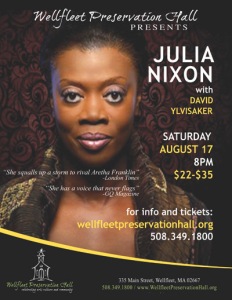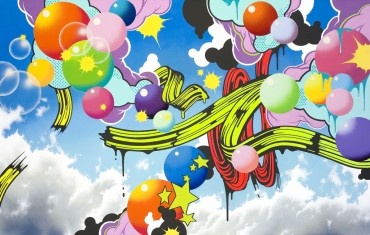
You’re The First, The Last, My Everything – Barry White
We got it together, didn’t we?
We’ve definitely got our thing together, don’t we baby?
Isn’t that nice?
I mean, really, when you really sit and think about it, isn’t it really, really nice?
I can easily feel myself slipping more and more ways
That super world of my own
Nobody but you
And me
We’ve got it together, baby
Ohhhh ohhhh
*
Pow. That’s how the long version begins. When you read it, read it aloud like a white person, sitting down, it seems ludicrous. That’s because you have to mean it. And maybe, have a voice that comes from your boots through your gut and out from your heart. Maybe, just maybe, you have to be Barry White.
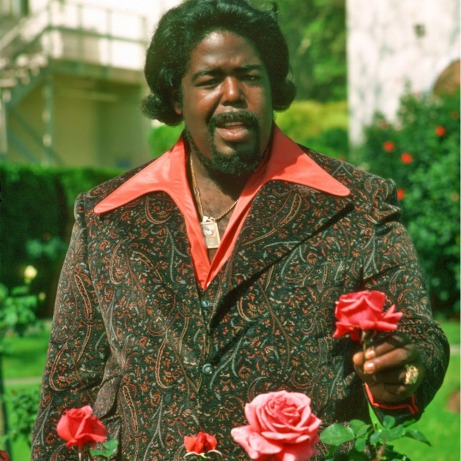
*
Remember the early days of lockdown? Seems like five years ago.
*
Diary Extract
Monday night in Brooklyn, 17th March 2020.
We are entering the unknown. The truly unprecedented moment which the world has not faced before. OK Spanish flu in 1918, 102 years ago.
We don’t go out very much but today – the last day that pubs cafes and restaurants will be open, we decided to have a last romantic meal in Olea on Lafayette, three blocks from our duplex. We made quite a big deal of getting ready, the sun was pale but warmed the 7 degrees Centigrade air, spring is making an attempt. When we got there it was closed with a sign on the door.
WE ARE SADLY CLOSED TEMPORARILY
Which was sad. Would we go home? We walked back up to De Kalb and found Dino’s Roman’s and Brooklyn Public House also closing up because of the city ordinance. Walked up Clinton Avenue to Myrtle where Mr Coco had run out of baked beans and potatoes. Opposite was Puttnam’s – a gastro pub where we ate on our first night in Brooklyn over six years ago. It was open. We walked in and the bar menu was available, along with alcohol. About eight people were sitting at the bar. We sat in the far corner in a pool of spring sunshine and ordered Impossible Burgers. I had a pint of Guinness, Jenny a glass of Stella. When will we next do that?
People came and went, squeezing the hand sanitizer on the wall as they did so. We paid with a card, and Jenny squirted it with her new lavender sani bottle containing 62% alcohol. It was a strange but lovely meal. We tipped the waiter $20 on a $60 bill. He had four hours left on his shift before they closed for… how long? Where was his next tip coming from?
It was a short walk home with plenty of people out. I stood outside smoking while Jenny bought apple juice, limes and eggs in Greenville Gardens our local bodega. The girl serving asked after me and remembered our discount code because she is sweet. The other girl was scared. No one knows what to feel.
*
Harry Potter and The Cursed Child closed on Broadway last Thursday at 5pm and Jenny, who plays Hermione, came home stunned and in mourning. The 2nd year cast were due to finish on Sunday and there was a grand farewell party planned to send them off in style, including her stage husband Ron, played by Matt Mueller. She has been in mourning for this stolen moment since then. But she has also been left without a show to do, without wages (we’ll see what happens there?) and without a distraction for her to stop her thinking about her sister Dee who died last summer.
Now it’s just us four in the house. Jenny, Ralph, Roxy and BoyBoy. We haven’t got a routine yet, but every morning I tend to wake and make tea & toast and bring it all upstairs. I like marmalade and jack cheese, and Boy always gets a corner of cheese which he loves so much that he will chew my fingernail in case there’s any left in there. Then every other day there is Pilates downstairs to disco music. I’ve decided to do a PhD in Disco during this lull. Brother Paul thought it was for real. He was a disco kid back when it was a thing, a gay man in New York City in 1980 dancing in the clubs to Donna Summer, Sylvester, Cerrone, Patrick Juvet. I’m a much more recent convert – probably around 20 years ago when I started to really love it. My way in was via Philly soul and the Gamble & Huff productions of the O Jays, Harold Melvin and Thom Bell with The Stylistics who have become my favourite band. From there you acknowledge Norman Whitfield and Papa Was A Rolling Stone, Earth, Wind and Fire, Barry White and George Macrae. It’s been fun talking to Paul about it over the last few days.
I’m also writing up the numbers of Covid 19 cases and deaths every day, country by country. Some kind of handle to grasp on it, this strange blurry unseen enemy. Watching Biden and Bernie, in their late 70s arguing on TV about who had the best plans for the virus and thinking they’ll both die if it gets them. So therefore who will be the running mate? The British Government, the US President and the Brazilian President have all shown a shoddy and weak approach because they are all populist blowhards who reject experts and appeal to racists and homophobes for their support. Perhaps this crisis will see the beginning of the end of this kind of leader. Perhaps the voters will understand that leaders are needed who have a level head and listen to experts.
It’s strange to think how utterly changed the world will be once this passes. There will be a massive recession. There will be numbers of dead. But perhaps, maybe the world will have hit the re-set button and we will have spent some time thinking about how we organise ourselves and our world. We can only hope.
*
Now it’s July 10th 2020. Has anything changed? Oh yes, plenty. George Floyd was murdered by racist policemen in Minneapolis at the end of May and the world exploded. This triggered Jenny’s first walk outside since that visit to Puttnams. Down to Barclays Center and the crowds of protestors. The anger was greater than the fear. A police car was burned on De Kalb Avenue and the ashes now form a memorial to George Floyd. We had constant NYPD helicopters hovering overhead ever since and nearby. Then we had fireworks every night for six weeks, from all directions. And we’ve had Covid-19 powering through all of it. I had the test a couple of weeks ago at Brooklyn Hospital just across Fort Greene Park there. Negative. Yes and I spent many hours immersed in my Disco PhD – indeed when I mentioned this fact to a screenful of students I was teaching one afternoon some young wag said
“Oh so you’re going to be a Doctor of Disco?”
Let’s not get carried away. But on that first weekend I had volunteered to guru for Songbar once again, I usually do about 4 weekends a year. I feel as if I have spoken about this before – an online music blog with people suggesting songs and tunes to fit a musical theme which changes every week. This particular week I suggested Songs Which Quote Shakespeare which was quite max factory of me, but sometimes you have to embrace the cheese mon ami, mon petit gruyére. (Where’s the backwards accent on a computer?) Anyway. And there on Day 2 some young blade named pejepeine suggested a tune I had never heard before called Romeo & Juliet by one Alec Costandinos which is a disco marvel and lasts a full 15 minutes in twelve inch format. Blimey what a discovery that was, and straight into my top twelve Shakespeare tunes. The rest you can find here :
https://www.song-bar.com/song-blog/playlists-songs-that-quote-shakespeare
If you so desire. It seems clear to me that Alec Costandinos was influenced greatly by Barry White. And listening to these disco tunes every other day as we stretched and twisted and bounced our Pilates around the apartment it occurred to me that disco had been coming for years before Disco.
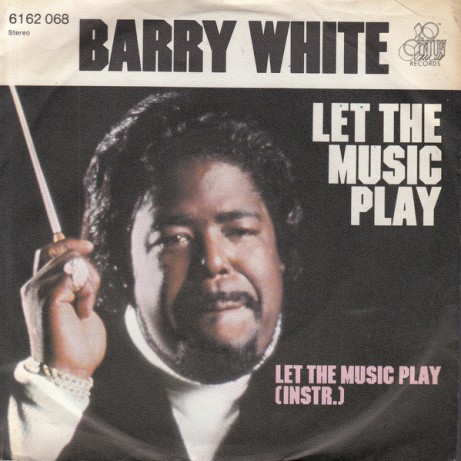
Not proto disco. Actual Disco.
I found a Youtube playlist called Proto Disco – the tunes that took us to disco. They include the ones mentioned above, essentially – Philly Soul, The Tempts and the great Barry White. Some other nice discoveries – MFSB weren’t just a one-hit wonder for example. The Hues Corporation were though perhaps. And then I swooned into Barry White. Did Pilates to Barry White. Did a PhD in Barry White. Told my friend Simon about my PhD in Barry White. Confessed that actually it was more of an O Level in Barry White to be fair. But, readers who have read thus far, here are the salient facts.
a) Love Unlimited are Barry’s backing vocalists, sisters Glodean James (who married Barry), Linda James and their cousin Diane Taylor. They had hits in 1972 with Walking In The Rain (With The One I Love) and 1973 with It May Be Winter Outside (But In My Heart It’s Spring), both written by Barry White, although the latter song was co-written by Paul Politi and was a minor hit for Felice Taylor in 1967 as was I Feel Love Coming On also written and produced by Paul & Barry. Walking In The Rain was a hit a full year before Barry White’s first single.
b) The Love Unlimited Orchestra was formed by Barry White in 1973 as a backing group for Love Unlimited. However they were soon releasing music of their own, with no top line. I found the first LP, Rhapsody In White at the Brooklyn flea market about five years ago. What a find !
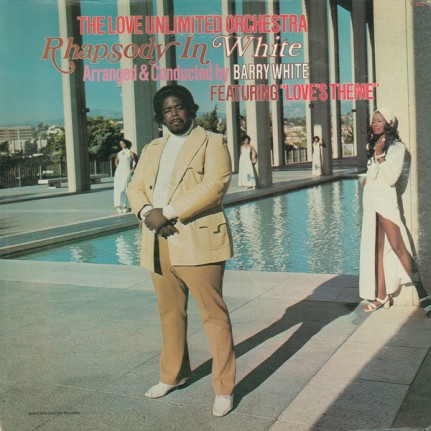
An unusual combination at the time of funk rhythms and orchestral instrumentation, in retrospect it seems clear that this is the birth of disco. Barry White wrote long and short versions of the classic Love’s Theme which was released in 1973 and made number one on the pop charts. It changed the world. To me it sounds like a TV Theme tune until we start dancing. It is classic disco from 1973, three long years before Disco was DISCO. Perfection. Groove. I had to tussle with myself about which Barry White song to choose today. Here’s the long version of Love’s Theme. Grab your lover and move gently around the room to this baby
There is something supremely endless about this song
c) Barry White wanted to be a writer, producer and arranger – and so he was for many years, working with longtime collaborator Paul Politi, until one day in 1973 Paul suggested, for the eleventeenth time, that Barry re-record his demo and sing the damn song himself. Now Barry’s voice is one of the world’s 70 wonders, a bass baritone which shakes the buttons on your blouse. His voice dropped when he was 14 and apparently his mother wept. The first of many mothers to weep. Larry Nunes was Barry’s business manager by now, and together with Politi they persuaded Barry to record the song himself. That song was I’m Gonna Love You Just A Little Bit More Baby. It appeared on the first LP I’ve Got So Much To Give and the rest is pop history, R & B legend and musical eternity.
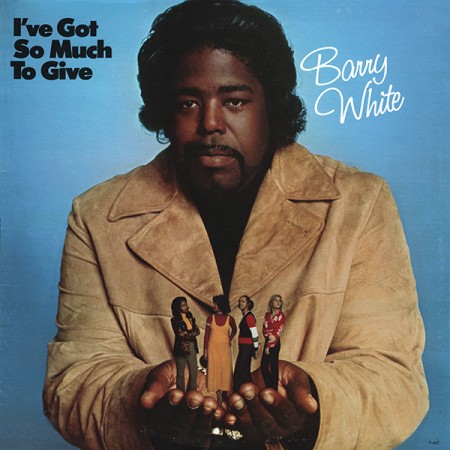
My brother Paul was way ahead of me on this curve because he spotted the genius of Barry White early on, certainly by Never Never Gonna Give You Up with it’s breathy sighs and pillow talk in the mix and
“quitting just ain’t my stick”
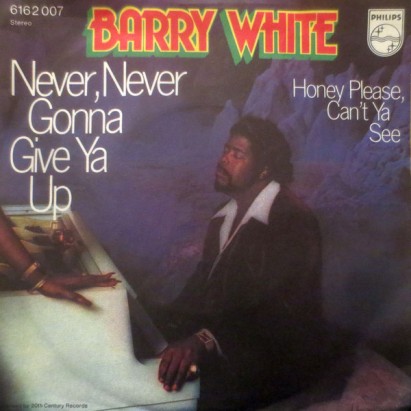
But for Paul I think it was the production that he loved, the rooted bass line in lockstep with the warm crisp architecture of the drums. Wacka wacka rhythm guitar, some french horns summoning us all to the mountaintop, and violins and flutes on the top end creating lush generous fills. Barry’s voice felt compassionate and passionate at the same time. Somehow made it sound like he wasn’t going to force anything, wasn’t going to stretch his voice like Little Richard or James Brown, no, this was another style, not reaching but drawing you in, relaxed and centred and genuine. It was the sound of the heart of the 1970s.
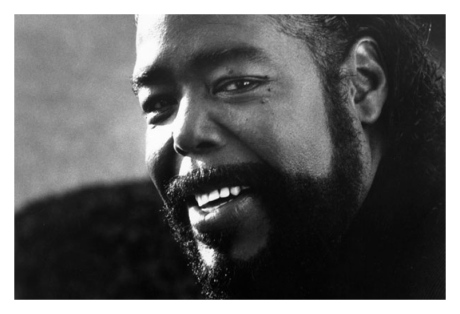
People took the piss from day one, especially men, small dick energy wrote about The Walrus Of Love and stuff like that. Barry was a smiley performer though, if you watch any of his concerts online (and I do recommend it!) he always takes time to walk through the audience, shaking hands with people and kissing the ladies, never missing a beat, singing the whole way. Quite a show. My late development as a soul fan (early 20s) means that I missed many of the greats, including Barry White, Millie Jackson, Teddy Pendergrass and Marvin Gaye playing live. But I’ve been a lucky boy too and am eternally grateful and blessed to have seen Aretha, Smokey, Curtis Mayfield, Chaka Khan and Parliament/Funkadelic. And now we all have Youtube, where Barry and Teddy and Marvin sing every night.

In 1974 as I started the Upper Sixth at school Paul was leaving his school in Hailsham and leaving home because Mother had sent him a solicitor’s letter, using her mental illness as a weapon to force him out of the house. He was 16 years old. He went to live in Eastbourne, then Pevensey Bay and got a job in the local tax office. In October 1974 You’re The First, The Last, My Everything was released, another of Barry White’s unfeasibly long titles, and a piece de resistance of a song which reached both Paul and I in different ways, and the coveted Number One position on the UK Charts. A fact which meant that it was in contention (surely) when the Guardian decided to list the 100 Greatest Number One Hit Singles later in lockdown this year and signally failed to include it. My family had a Zoom Call around that time – May 2020 I reckon – and Paul, now living in Shanghai, was furious. Given that the Pet Shop Boys’ West End Girls had made number one, and Human League were in the top ten he had a good point. Once again it was Barry White not getting his due, being sidelined, not included in ‘best of’ lists. It perhaps is partly to do with his physical appearance (maybe he predicted/feared this), or more feasibly his style of music and the way he delivered it. Barry White made songs that appealed to women, directly. Men knew this and ridiculed it because deep deep down it makes them feel inadequate. Which they often are. I always loved dancing to Barry but I didn’t take it seriously or recognise his true genius until I did my O Level earlier this year. My Lockdown Lover. A truly towering figure.
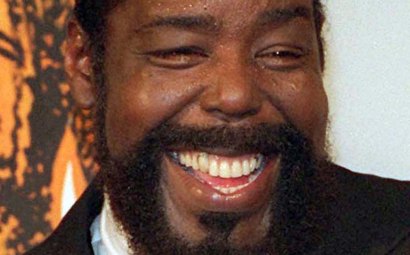
It was the night of Dee’s funeral, October 2019 or was it more likely the night before Jenny and I flew back to New York, two days later. A Sunday night. Deep emotional unprecedented days in High Wycombe with the family. Me, Jen, Mandy, Lucy, Mollie (?), Marlyn, Uncle Lee, I think it must have been around 1.30am and no one wanted to say goodnight, we were camped in the living room downstairs and someone flicked through the channels. A Barry White documentary. Talking about his orchestrations, his collaborators, his charisma, and his sad death at only 58 years old in July 2003 in Cedars Sinai hospital Los Angeles when the family were kept from visiting him by the hospital staff on the instructions of his girlfriend and manager, presumably with the support of ex-wife Glodean who became the sole executor of the will. Two of his children have since sued Glodean as their monthly allowances dried up and stopped. And talking about how this song was written as a country tune some 20 years earlier (in the 50s) by his old friend Stirling Radcliffe entitled “You’re My First, My Last, My Inbetween”, whereupon Barry changed the words and upped the tempo considerably and then improvised his way through the intro on take 2 which is the one that became the hit smasherooni.
Play this song. You will hit the snare drum, just a little late, just like the record does, perhaps hitting your thigh, or the person who you are dancing with, or cracking an invisible whip. One of the signature sounds of my life. Thwack!
Let’s all hail the Soul Lover, the one and only, the great musical wonder that is
Barry White


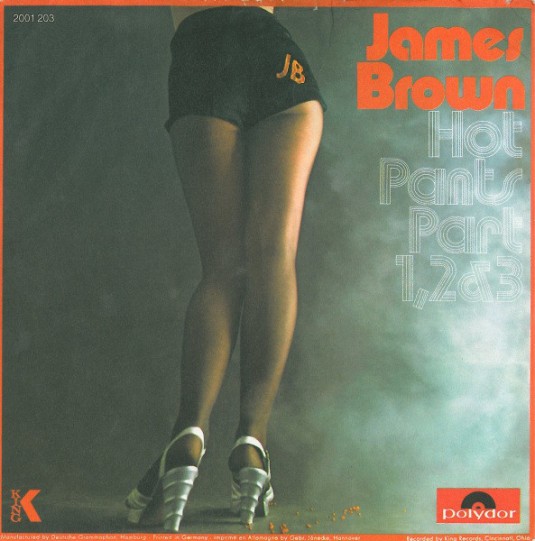



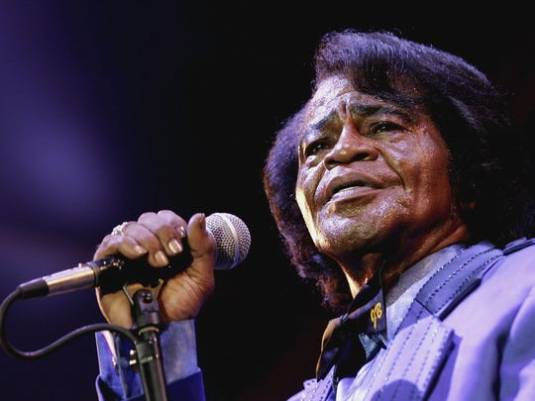

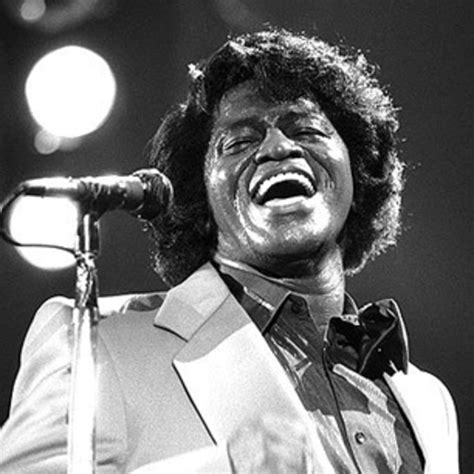
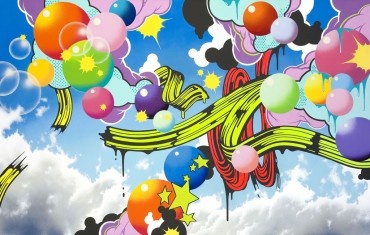





























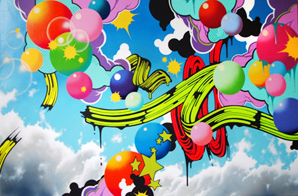
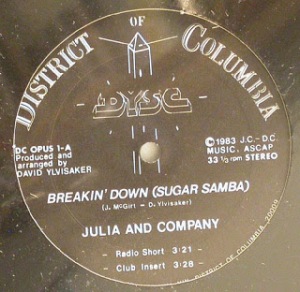
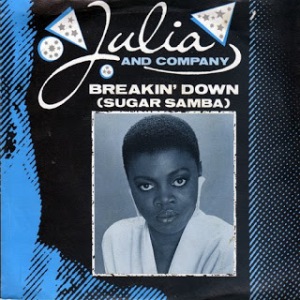 Knowing nothing about this group until recently when I learned that Julia Nixon had replaced Jennifer Holiday in Dreamgirls on Broadway, and that after this cracking single in 1984 and the follow-up I’m So Happy, she finally released her first solo LP in 2007 some 23 years later.
Knowing nothing about this group until recently when I learned that Julia Nixon had replaced Jennifer Holiday in Dreamgirls on Broadway, and that after this cracking single in 1984 and the follow-up I’m So Happy, she finally released her first solo LP in 2007 some 23 years later.